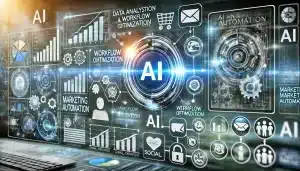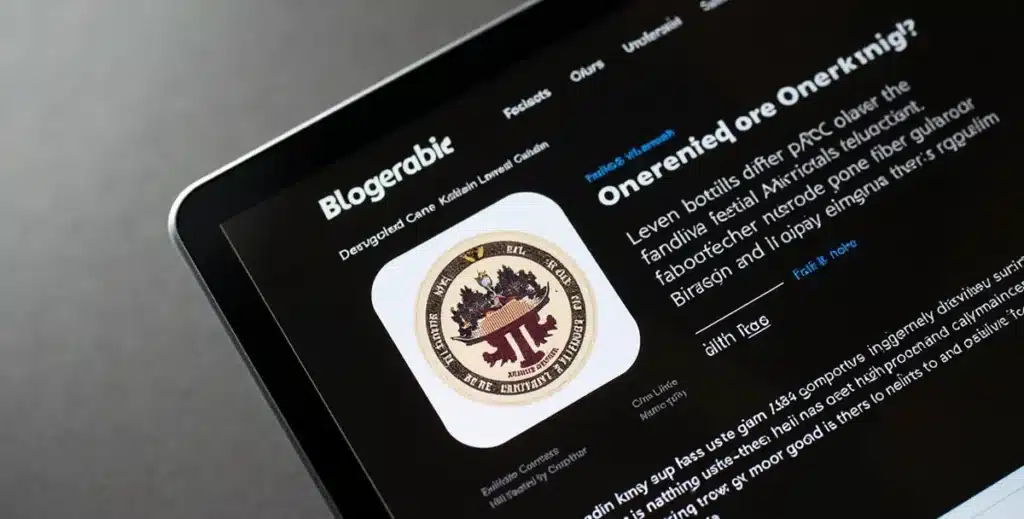In the fast-paced world of digital marketing, efficiency is paramount. Businesses today must adapt quickly to changes in consumer behavior, market trends, and technological advancements to stay ahead of the competition. One of the most impactful tools that marketers have at their disposal is artificial intelligence (AI). AI has become a game-changer in marketing, particularly in the realm of marketing automation and workflow optimization. By automating routine tasks, streamlining processes, and providing data-driven insights, AI allows businesses to achieve more with less effort.
As businesses increasingly rely on digital platforms, the role of AI has expanded beyond simple automation. It’s now integral to driving personalized marketing campaigns, improving customer engagement, and optimizing marketing workflows to ensure that teams focus on high-impact activities. This article will explore how AI is revolutionizing marketing automation, enhancing workflow optimization, and empowering businesses to make smarter, data-driven decisions in an increasingly competitive landscape.
AI-Powered Marketing Automation
The core promise of marketing automation is to reduce manual effort and allow marketing teams to focus on strategy and creativity. But automation, without intelligence, can only take you so far. This is where AI-powered marketing automation comes into play. AI enhances traditional automation by intelligently managing repetitive tasks such as email campaigns, social media posts, lead scoring, and audience segmentation. Unlike traditional automation, AI doesn’t just follow predefined rules—it learns, adapts, and optimizes based on real-time data.
Automating Routine Tasks with AI
AI in marketing automation can handle a variety of repetitive tasks that used to take up valuable time for marketers. For instance, email marketing is one of the areas where AI has a significant impact. AI-powered platforms can analyze open rates, click-through rates, and customer preferences to automatically adjust subject lines, send times, and content to maximize engagement. This means businesses can personalize their email campaigns in a way that feels natural, without spending hours on manual A/B testing.
Similarly, AI helps optimize social media management by scheduling posts, analyzing engagement rates, and automatically adjusting content strategy based on real-time results. By automating these processes, businesses save significant amounts of time and can ensure that their content reaches the right audience at the right time.
Personalization at Scale
One of the key benefits of AI-powered marketing automation is the ability to deliver highly personalized experiences at scale. AI can segment audiences based on a variety of factors such as demographics, purchasing behavior, and browsing history. With this segmentation, AI can personalize messaging, tailoring it to the specific needs and interests of individual consumers.
For example, an e-commerce company can use AI to recommend products to customers based on their browsing history and previous purchases, thereby increasing the likelihood of conversions. Similarly, AI-driven content recommendation engines can deliver personalized content to users based on their past interactions, improving engagement and retention.
This level of personalization not only enhances the customer experience but also drives better results for businesses. Personalized campaigns are more effective in terms of conversion rates, customer loyalty, and overall ROI.
Predicting Customer Behavior
AI doesn’t just automate tasks—it also predicts customer behavior. By analyzing vast amounts of data, AI can forecast future actions based on historical trends. This is particularly valuable in email marketing and leads nurturing, where AI can predict which leads are most likely to convert based on past interactions.
AI can suggest the best course of action for engaging a lead, such as the optimal time to reach out, the best content to send, and the most effective channel for communication. This predictive capability ensures that marketing teams are always a step ahead, making smarter, data-driven decisions that maximize ROI.

Workflow Optimization with AI
In addition to enhancing marketing automation, AI also plays a significant role in optimizing marketing workflows. Efficient workflows are critical for any marketing team, as they ensure that resources are allocated effectively and that tasks are completed in a timely manner. AI can significantly improve these workflows by automating routine tasks, streamlining communication, and helping marketers make data-driven decisions faster.
- Identifying Inefficiencies: One of the primary ways AI helps optimize workflows is by identifying inefficiencies. AI can analyze how tasks are executed and pinpoint areas where time or resources are being wasted.
- Prioritizing Tasks and Managing Resources: AI can also help marketers prioritize tasks based on urgency and importance. For instance, if a marketing campaign needs to be launched quickly or a social media post requires immediate attention, AI can automatically highlight these tasks and ensure that they are completed on time.
- Agility and Faster Decision-Making: In today’s competitive digital landscape, agility is crucial. The ability to adapt quickly to changing trends, customer needs, or market conditions can make the difference between success and failure. AI enables marketing teams to be more agile by providing real-time insights that help marketers make decisions faster.
Predictive Analytics and Decision-Making
Perhaps the most powerful aspect of AI in marketing is its ability to perform predictive analytics. Predictive analytics involves using historical data and machine learning models to forecast future trends, customer behavior, and campaign outcomes. This capability allows marketers to be more proactive, rather than reactive, in their decision-making.
Forecasting Trends and Campaign Outcomes
By analyzing past data, AI can predict how different marketing strategies are likely to perform. For instance, AI can forecast the success of an upcoming email campaign based on previous open rates, click-through rates, and engagement data. It can also predict customer lifetime value (CLV), helping businesses determine which customers are likely to generate the most revenue over time.
With these predictions, marketers can adjust their strategies to optimize resources and maximize ROI. For example, if AI predicts that a particular segment of leads is more likely to convert, marketers can allocate more resources to nurture those leads, ensuring a higher likelihood of success.
Resource Allocation and Campaign Optimization
AI-driven predictive analytics also plays a crucial role in resource allocation. By identifying high-potential leads and predicting which campaigns are most likely to succeed, AI enables marketers to allocate resources more effectively. Rather than spending time and money on low-priority leads, marketers can focus their efforts on the most promising opportunities.
Furthermore, AI can optimize campaigns by recommending the best course of action for nurturing leads. It can suggest the ideal content, channel, and timing for outreach, ensuring that every marketing touchpoint is optimized for maximum impact.
Conclusion
AI is transforming marketing automation and workflow optimization, enabling businesses to operate more efficiently, make smarter decisions, and achieve better results with less effort. From automating routine tasks to enhancing personalization and leveraging predictive analytics, AI empowers marketers to optimize their strategies, allocate resources more effectively, and improve overall marketing performance. As AI continues to evolve, its role in shaping marketing operations will only grow, providing businesses with a competitive edge in an increasingly complex digital landscape.
The ability to integrate AI into marketing workflows is no longer a luxury—it’s a necessity for businesses looking to stay ahead of the curve. By embracing AI, businesses can streamline processes, enhance customer engagement, and ultimately drive higher conversions, leading to increased profitability.



